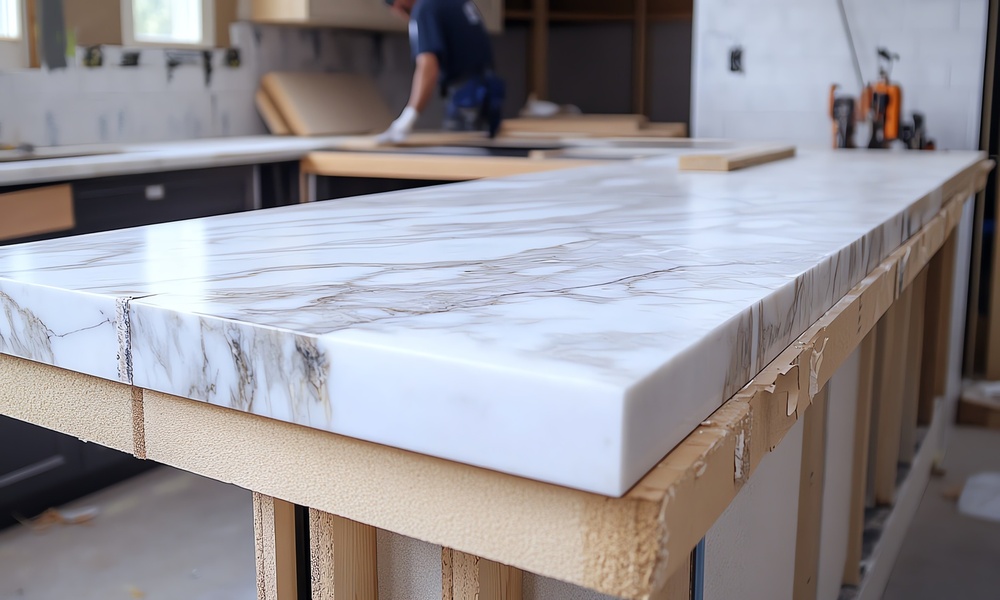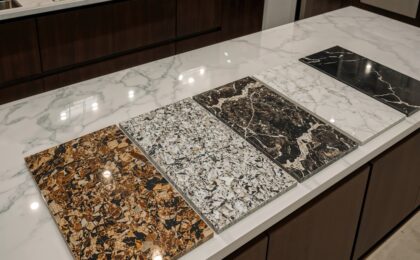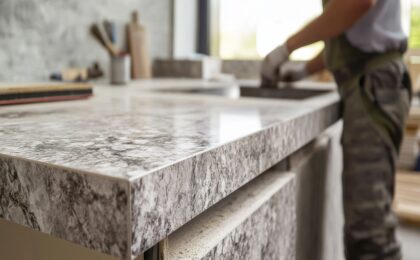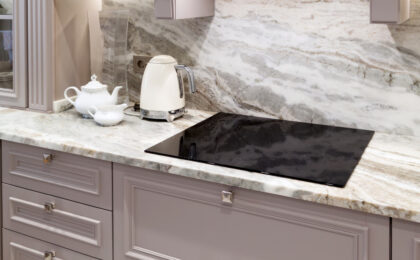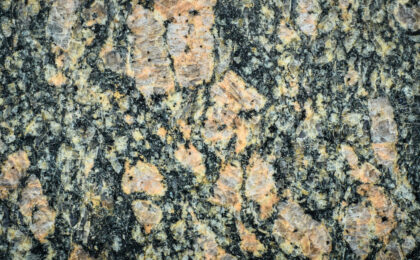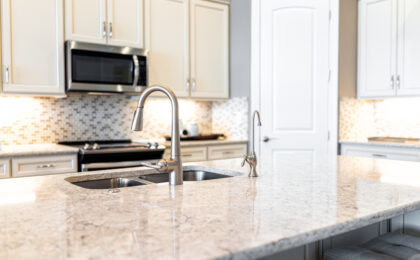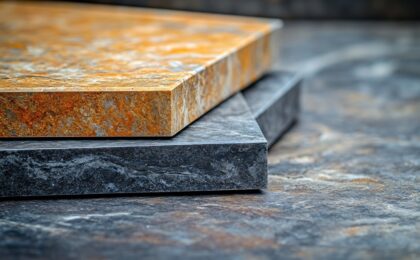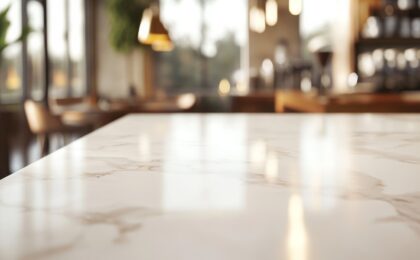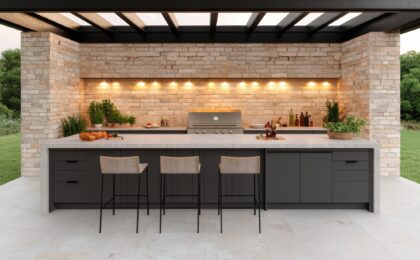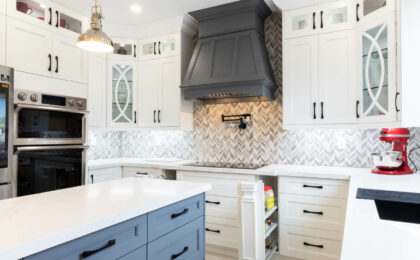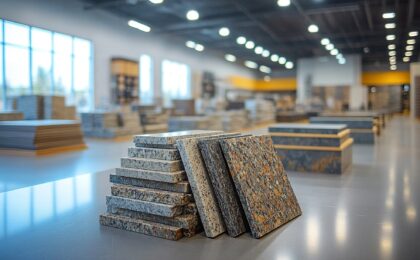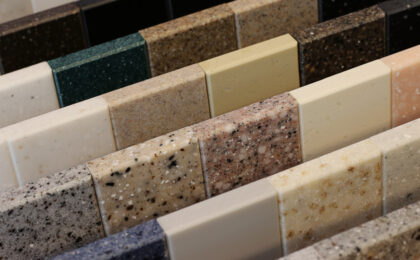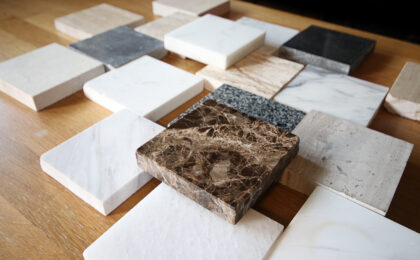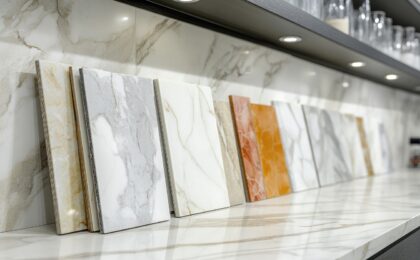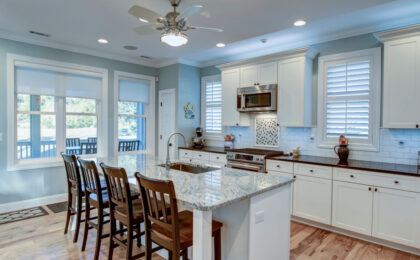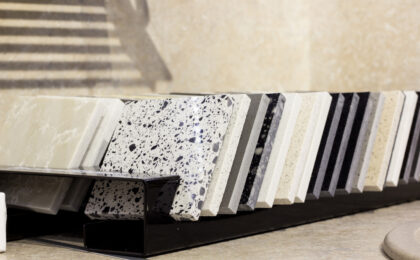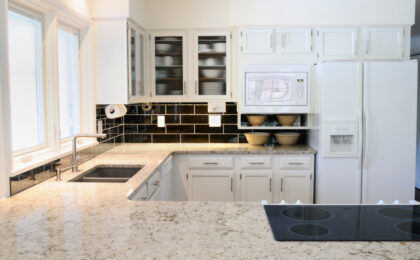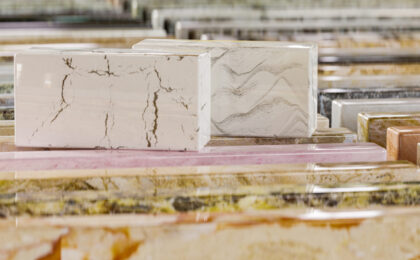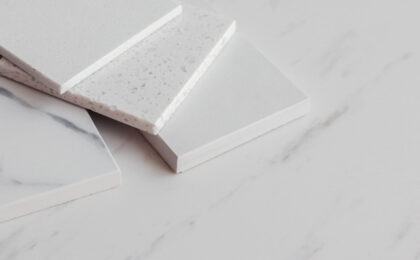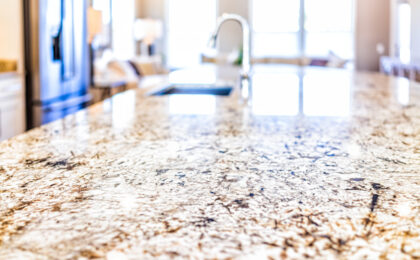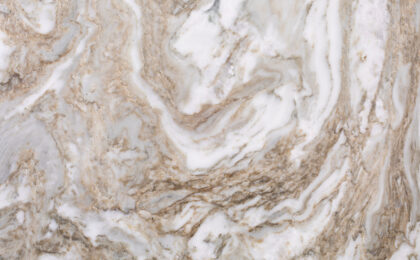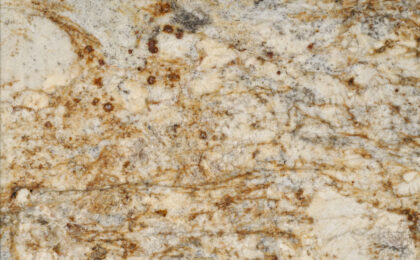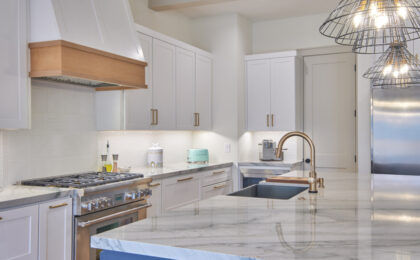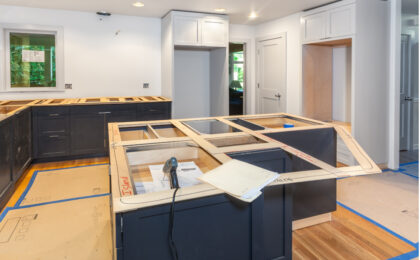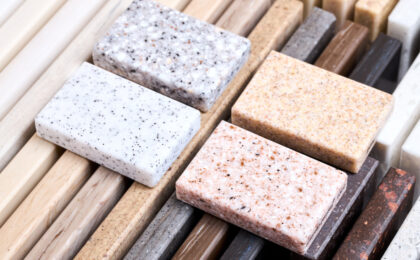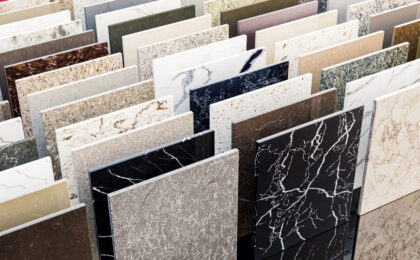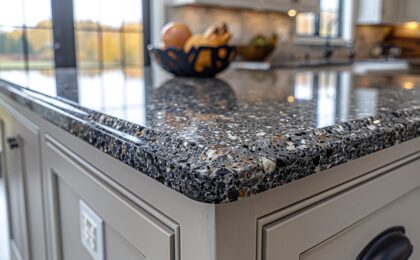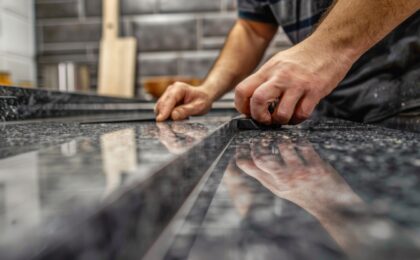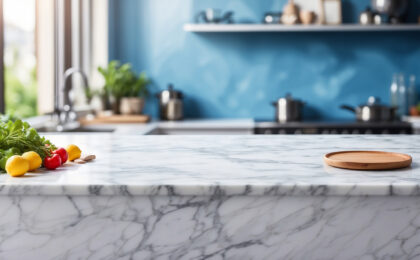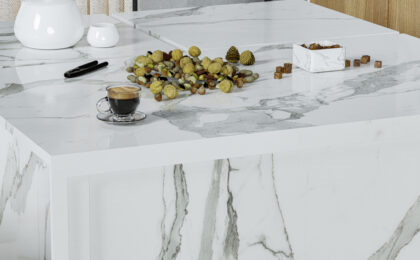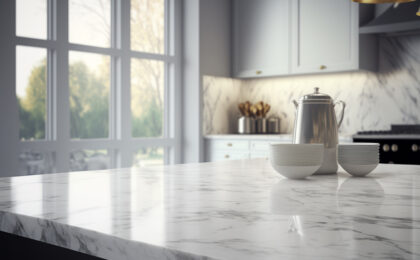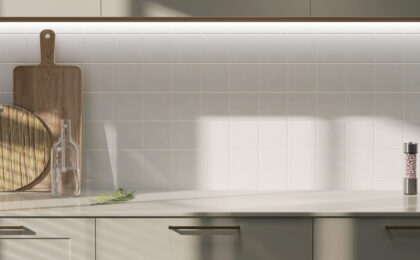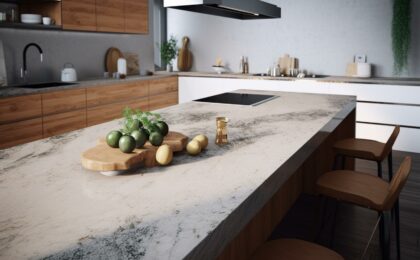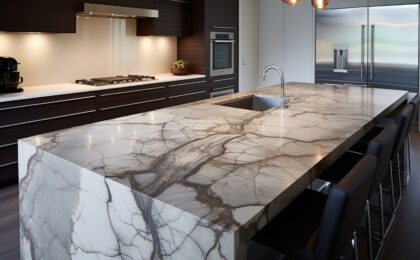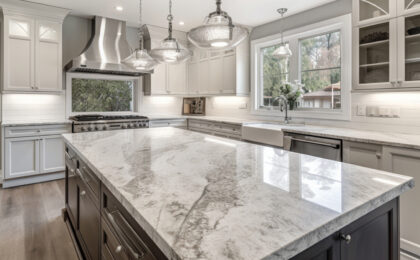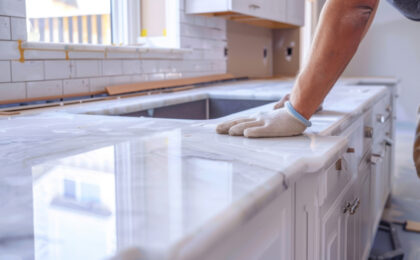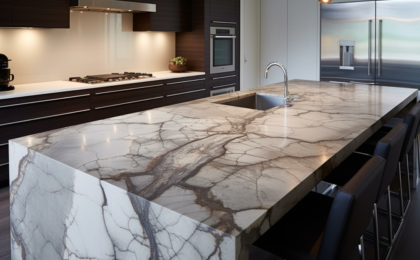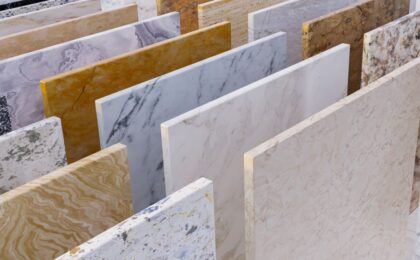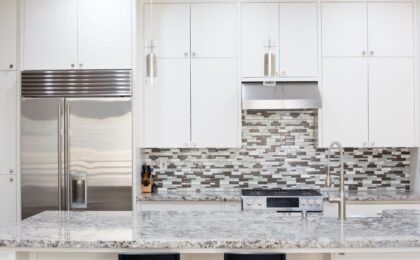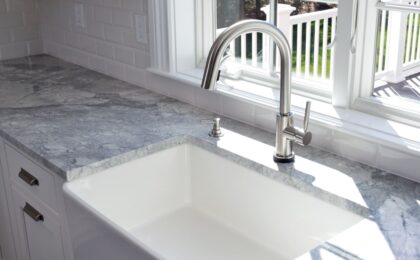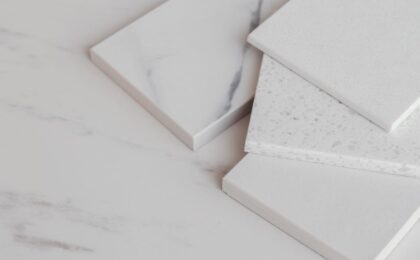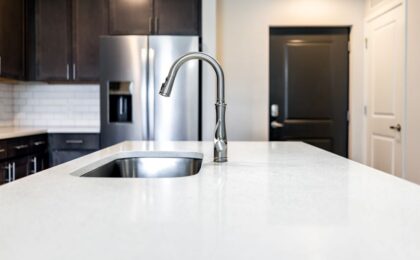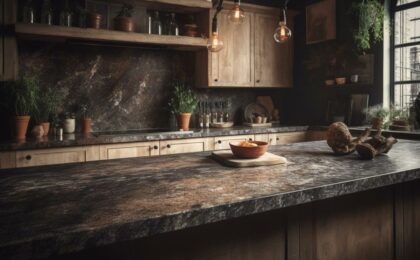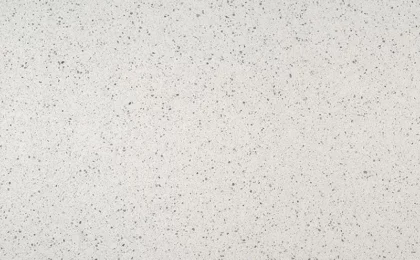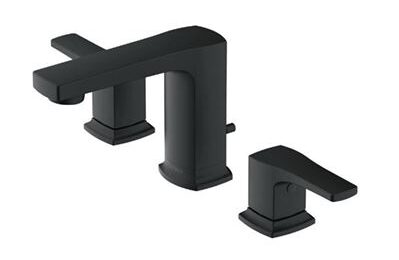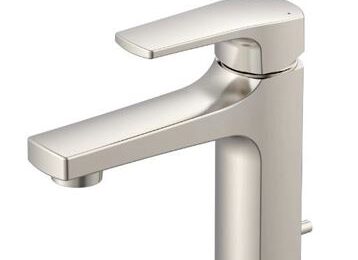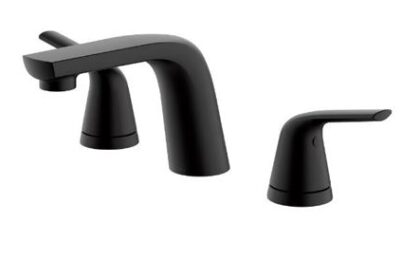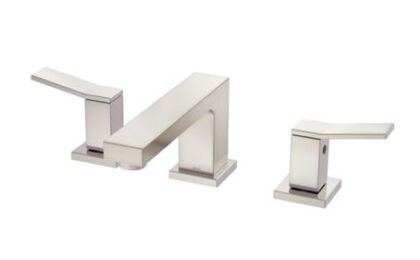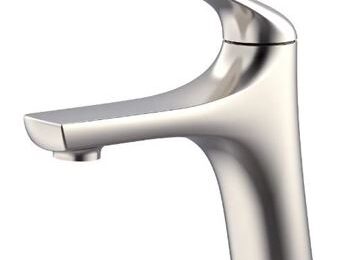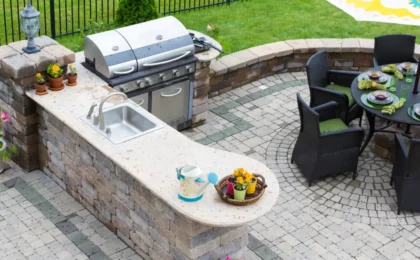One of our previous blog posts discussed how the size and weight of stone countertops makes their installation challenging. Truth be known, stone is heavy. But there is another side to the weight coin, a side we want to explore in this post.
What is this other side? The fact that stone countertops can support a lot of weight. Not that you would load up your countertops with 1,000 pounds of stuff, but you could without worry. A natural stone countertop can take a lot of weight without cracking if it is properly supported.
For purposes of illustration, we will focus primarily on granite for the remainder of this post. Granite can support more weight than most engineered products – including quartz.
Granite Has a Crystalline Structure
Granite’s ability to carry a tremendous amount of weight begins with its crystalline structure. The stone is formed under intense pressure and heat over prolonged periods of time. Pressure and heat combine to create a very dense and hard stone with a crystalline structure that is tight and interlocked. It is this density and interlocking nature that makes granite so strong.
If you have ever done a jigsaw puzzle, imagine putting together ten puzzles and stacking them. But instead of just laying on top of one another, the puzzles are interlocked with each other in the same way the individual pieces of each puzzle are interlocked. That’s what you get with granite. It is so strong that it can withstand up to 1,000 pounds per square foot.
Being able to handle so much weight makes granite ideal for countertop surfaces where significant overhangs are desired. It is also ideal for islands, given the fact that islands often become de facto storage spaces for various odds and ends.
Granite Is Less Susceptible to Compression
Granite’s density makes it less susceptible to compression. Without getting too scientific, compression is the natural result of excessive forces acting on a surface. Granite doesn’t compress much because it is already so dense. But what about engineered materials?
Quartz countertops are manufactured by combining ground quartz grains with resins and pigments. The resulting product is still durable and quite strong. But because it lacks the density and crystalline structure of natural stone, quartz is a bit more flexible. That also makes it more susceptible to compression.
Compression equals potential damage under excessive loads. So it is a lot safer to limit quartz countertops to about five hundred pounds per square foot. You are looking at half the weight that granite could support without fear of failure.
Granite Is Naturally Hard
Finally, granite’s density and crystalline structure make it an extremely hard material. Though hardness doesn’t directly affect the material’s ability to support tremendous amounts of weight, there is an indirect effect. That effect is rooted in granite’s ability to withstand significant impact.
A strong enough impact can cause a material to fail even when weight load is limited. Because granite can withstand significant impact forces, it is less likely to fail even if heavy objects are dropped on it.
Natural Stone Is a Great Option
We know natural stone countertops are heavy. But they are also capable of withstanding significant weight and impact energy. That makes natural stone a great option for the kitchen. Engineered quartz isn’t a bad choice either.
If you have been considering stone countertops for your home, why not pay us a visit at Bedrock Quartz? We offer a number of showrooms throughout Utah where you can see the stone in person and ask every question you have about stone as a countertop surface.
